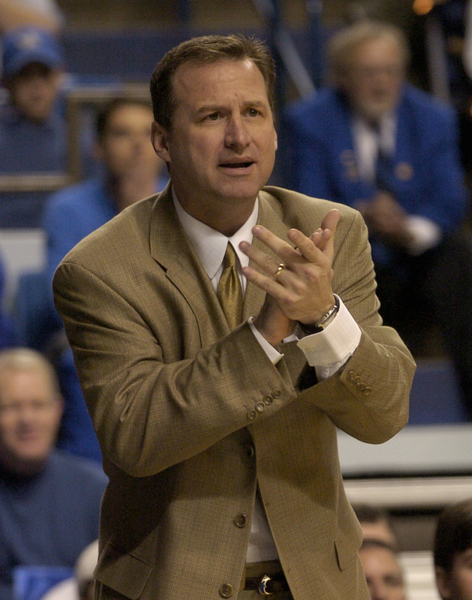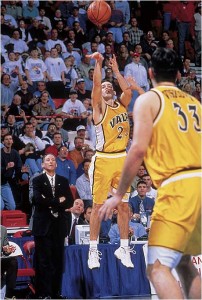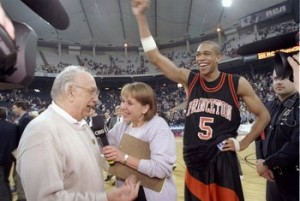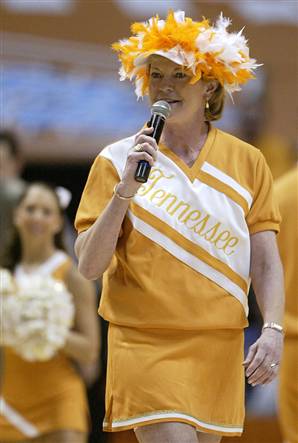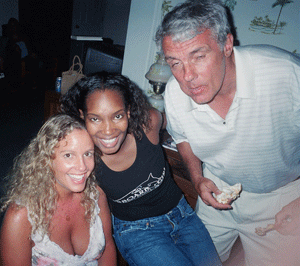
Jared Quillen is the RTC correspondent for the SEC.
A Look Back
The NCAA Sitting on Their Thumbs: Am I the only one that finds the NCAA to be a little ridiculous? This week, the omnipotent governing body of college athletics released its findings on Tennessee coach Bruce Pearl regarding his little BBQ incident with potential recruits. I hope they were Memphis style ribs by the way — those are my favorite. Anyway, while I’m not really interested in commenting on the findings as there really wasn’t anything here we weren’t already aware of, except for a previously undisclosed secondary infraction committed by Bruce Pearl and assistant Tony Jones. Last summer they spoke with 2012 recruit Jordan Adams prior to the start of basketball practice. That was a no-no, but secondary violations are of little consequence.
What I want to talk about is the 22-month investigation undertaken by the NCAA. I mean really? 22 months to tell us what we already knew, that Bruce Pearl attempted to influence others to provide the NCAA and Tennessee “with false and misleading information concerning their involvement.” I gotta ask; what the heck is the NCAA doing up in Indianapolis? Now don’t get me wrong, I’ve been to Indianapolis, it’s a fine town, but surely at some point you can take a break from screwing around on the river next to your office and get some work done. I mean, two years! I guess I should give them some credit though. I mean, they did waste about 11 months or so sitting on information about Enes Kanter trying to decide what to do about his eligibility and I’m sure that kept them pretty busy. So maybe they just didn’t have time to work on Bruce Pearl’s case.
In the end, it worked out well for Tennessee as they followed this news with a win over Vanderbilt this week. Whenever the Volunteers are faced with adversity, they just go ahead and win their next tough game. Need I remind you of last year when half the team got suspended and Tennessee went out and beat number one ranked Kansas for good measure. I’m telling you, if the NCAA really wants to punish Tennessee, the best thing they can do is just leave the whole matter alone. The entire season will be a disaster.
A Lot of Politicking: Yesterday on the SEC Basketball coaches’ teleconference, multiple coaches were asked about the potential of reseeding the SEC tournament 1-12 instead of the current 1-6 divisional seeding. I found the statements from coaches disappointing overall. The question was dodged and deflected by SEC West coaches with political acumen. They really held the party line which read, “I’m sure we’ll have some things to discuss when the coaches meet this spring,” and as Andy Kennedy put it, “I just want to do what’s best for the conference.” In other words, “I don’t want to answer that question. Doing so would reveal that I like the unfair system currently in place that benefits lower tier teams from the weaker West Division.”
Not surprisingly, East Division coaches were quite comfortable speaking on the matter. Kentucky coach John Calipari noted that his team is 3-3 against SEC West teams and that he feels lucky to be 3-3. As far as he’s concerned, however, if there was no SEC tournament, “I’d be fine with that too.” Vanderbilt’s Kevin Stallings prefers reseeding, but Georgia coach Mark Fox was the most eloquent. He suggested that if they can’t agree to reseeding altogether, perhaps they could go to a system where both division leaders still receive the top two seeds and the rest of the teams are seeded 3 through 12.
While Fox’s suggestion sounds nice and it’s probably a compromise that coaches would buy into, this RTC correspondent is still displeased. A compromise here means that they’re still going to do something wrong, just not as wrong as before. Such a compromise ignores the problem that the SEC is rewarding poorer performing teams by giving them with an easier path to the championship. Get it right and move on.
Power Rankings
1. Florida (22-6, 11-3) The Gators beat Georgia at home and Chandler Parsons had 16 points in his return from injury. By winning that game, the Gators clinched at least a share of the SEC East Division for the first time since 2007. The Gators then fell to Kentucky in Lexington, but then again, nobody beats Kentucky in Lexington. Due to the Gators’ conference record and the fact that they took the first meeting with the Wildcats in Gainesville, they easily maintain their spot atop the power rankings.
2. Alabama (19-9, 11-3) Is the Tide slipping? A close game against SEC last place Auburn in which they just escaped with a 51-49 win followed by a 68-63 loss to Mississippi is not a good at this point in the season. On the flip side you could say that Alabama had a good week by reaching 15-0 at home and beating Auburn despite shooting just 26 percent from the field. A team that finds a way to win despite shooting that poorly is usually in a pretty good place.
3. Kentucky (20-8, 8-6) The Wildcats’ road woes continue. They lost to Arkansas in Fayetteville bringing their conference road record to just 1-6. This despite the fact they outshot the Razorbacks 42.3 percent to 38.4 percent, outrebounded them 43 to 35, allowed only seven assists to the Arkansas’ 10, blocked 11 shots to the Hogs’ six and committed 16 fouls to 18. In other words, they won every statistic except for the one that matters, points. The Cats followed that game with a win at home over Florida where John Calipari remains undefeated in his time in Lexington. The game was also the 500th win of his career. He is now 500-151. Darius Miller had his second career high in three games with 24 points topping his previous high of 22 against South Carolina. Brandon Knight scored a career high 26 points in the loss at Arkansas and was selected as freshman of the week by the SEC, his fifth such honor this season. That was Knight’s 12th twenty-point game, a freshman record at UK. Yes, that’s even more than a certain Mr. John Wall (who had eight of them)
4. Vanderbilt (21-7, 9-5) Vanderbilt lost to Tennessee at home. That loss means that Vanderbilt can now at best win a share of the SEC. After that loss, the Commodores took out their frustrations on the LSU Tigers winning 90-69. Lance Goulbourne had 16 points and 17 rebounds, particularly impressive numbers after he scored a total of four points in his last four games.
5. Georgia (19-9, 8-6) The Bulldogs shot 60 percent from the field in the first half but still lost to Florida. Georgia held South Carolina to just 28 percent from the field and 1 for 19 from three. But more significant, the Dawgs got their 19th victory on the season, matching their highest win total since Jim Harrick Coach left the program in ruins after a scandal plagued 2003 season. A win against LSU this week should be enough to get an at-large bid.
6. Tennessee (17-12, 7-7) Despite the win over Vanderbilt this week, I am feeling less and less confident about Tennessee’s tournament chances, especially after losing 70-69 to Mississippi State at home. Tennessee is just 3-4 at home in conference play and has lost 5 of 7. No worries, Tennessee still has a home date with Kentucky to close out the season, and Kentucky is terrible on the road.
7. Arkansas (18-10, 7-7) A single win over Kentucky at Bud Walton Arena may have saved coach John Pelphrey’s job. Good for him as he has quite the class coming in next year with four players in the ESPN top 100. That class is ranked sixth in the nation by ESPN and is certainly a sign of good things to come in Fayetteville if the fans can hold on just a little longer. Pelphrey’s great class could also be a liability in some ways however as programs like to bring coaches in at a time when they can make a first year splash. Rotnei Clarke was named SEC player of the week after scoring a career high 26 points in the win over Kentucky. Clarke is also just 6 three pointers away from passing Scotty Thurman, who is on the staff at Arkansas, for third on the Razorbacks’ all-time made three-pointers list. He now has 262 in his three seasons at Arkansas. It is likely that he will pass Pat Bradley some time next year becoming Arkansas’ all-time leader. Bradley recorded 366 three pointers.
8. Mississippi (18-11, 6-8) The Rebels followed their worst loss of the year at South Carolina with their best win of the year over Alabama. Chris Warren had 25 points, 5 assists, 2 rebounds and 2 steals as Mississippi overcame an 11-point second half deficit to beat likely SEC champion Alabama. But it’s too little too late for a team that came into the season looking like a potential at-large candidate. Gonna take a conference tournament championship now.
9. South Carolina (14-12, 5-8) The Gamecocks were able to snap their five game losing streak by beating Mississippi 79-73 despite a career high 33 points by the Rebels’ Chris Warren. There was simply too much Sam Muldrow for the Rebels to overcome as he came away with 23 points, 10 rebounds and 4 blocked shots. The Cocks’ next game against Georgia, however, was dismal. Only 48 points on 28 percent shooting can really get you down.
10. Mississippi State (18-11, 6-8) Despite shooting 56 percent from the field and outrebounding LSU 38-32, Mississippi State managed to lose 84-82 to the Tigers. How you’re able to pull that off, I don’t know. But it has been a season on weirdness in Starkville. The Bulldogs followed that loss with a 70-69 win in Knoxville, their first at Tennessee since 1999.
11. Louisiana State (11-18, 8-9) The Tigers ended their ten-game losing streak, barely, by beating Mississippi State 84-82 in Starkville but quickly resumed their losing ways at home in an embarrassing 69-90 loss to Vanderbilt. Don’t blame Storm Warren, though. He had eight assists, no turnovers and a career-high 24 points (he averages 7) on 12-of-20 shooting in the loss.
12. Auburn (9-19, 2-12) The Tigers don’t have a lot of weapons and are very young, but they have played two of the best defensive games of any team in the SEC this season. Earlier in the year the Tigers held SEC leading Florida to under 30 percent shooting overall and 20 percent from three in a 45-40 loss. This week they did just that again in a 51-49 loss to SEC leading Alabama in Tuscaloosa. The Tide’s Jamychal Green had to make a tip-in with .3 seconds to play for Alabama to get the win, but this game could very well have gone Auburn’s way. In the Tigers next outing, Arkansas’ Delvon Johnson had to get a dunk with six seconds remaining to give the Hogs a 57-55 win in Auburn. Credit coach Tony Barbee and his team for playing guts out defense. That takes heart when you’re having such a tough season. I see good things in Auburn’s future.
A Look Ahead
This time of year there’s always a lot of “Win and you’re in.” Let’s take a look at the games of consequence this week.
- March 1, Alabama @ Florida. No question, this is the game of the week. There are still those that claim Alabama is on a soft bubble. Getting the win at Gainesville all but guarantees the SEC crown and puts Alabama in “lock” status for the NCAA Tournament, a loss to St. Peter’s notwithstanding. These are the top two teams in the conference peaking at just the right time. Watch this game.
- March 1, Vanderbilt @ Kentucky. As it stands Vanderbilt gets the number two seed out of the East. If Wildcats win this one at Rupp, where John Calipari is undefeated in his two seasons at Kentucky, they have a shot to steal the number two seed. Plenty at stake here between two teams that shoot the three very well.
- March 5, Georgia @ Alabama. The Bulldogs probably still need a quality win to feel really comfortable about their at-large status. This game has been gift-wrapped as a late season opportunity to stand out in the minds of the selection committee. Win and they’re in.
- March 5, Auburn @ LSU. There’s something special about battles in futility. Here you have a clash of last place teams. LSU needs this win to avoid sharing last place with Auburn. Auburn needs it to avoid taking last place outright. LSU won the previous meeting at Auburn 62-55.
- March 5, Vanderbilt @ Florida. If Vanderbilt loses to Kentucky the Commodores can still hang onto the number two seed by beating Florida if Kentucky loses to Tennessee in Knoxville. Wouldn’t hurt their seeding in the NCAA’s either.
- March 6, Kentucky @ Tennessee. The Volunteers’ bubble is getting pretty soft despite their strong strength of schedule. Win and they’re in.































